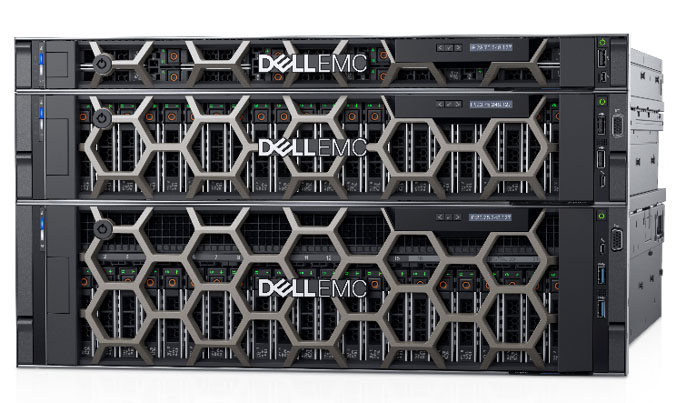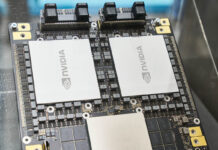As part of the Intel Xeon Scalable Processor Family launch, Dell EMC launched its 14th Generation PowerEdge server platforms. We are going to briefly cover some of the new platforms. We covered the new management features as part of Dell EMC World 2017.
New Dell EMC 14th Generation PowerEdge Servers
A major highlight for this generation, aside from the new CPUs and memory configurations is set to be storage. Dell EMC along with companies like Nutanix and VMware have been pushing hyper-converged in the market. Dell EMC is adding more NVMe hot swap bays to its servers in order to bring high-performance storage to this generation. Along with expectations of higher 25GbE adoption, Dell EMC is expecting considerable virtualization cluster improvements with this generation.
Dell EMC PowerEdge R640
For a general purpose 1U two-socket workhorse, the Dell EMC PowerEdge R640 is the company’s new go-to solution.
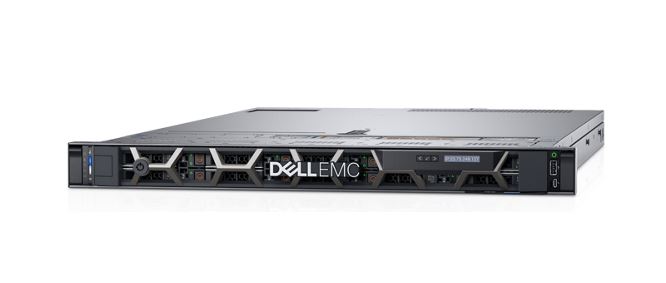
The new R640 supports up to 8x 2.5″ hot swap NVMe drives plus two SATA drives. This is part of the company’s major push to enable more NVMe bays in its servers.
Dell EMC PowerEdge R740
For general purpose compute nodes, the Dell EMC PowerEdge R740 is designed to be a flexible building block.
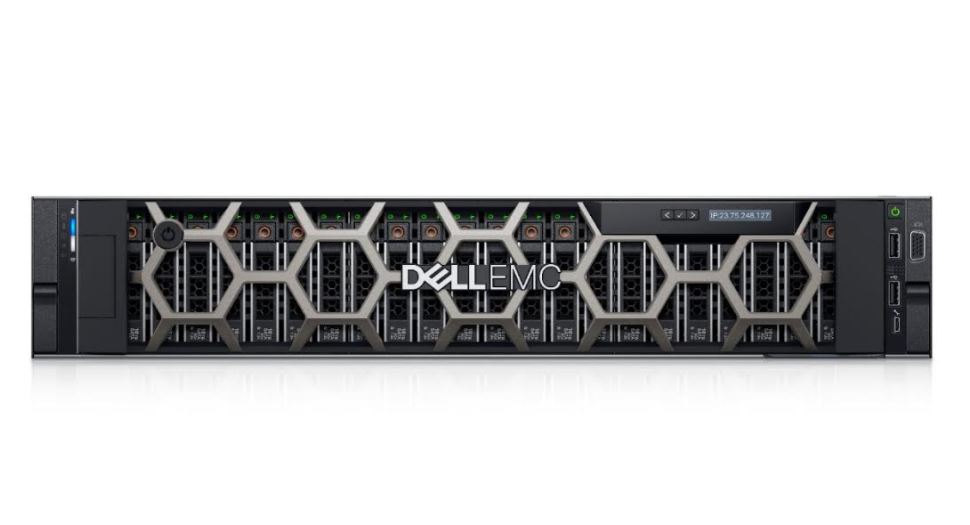
One highlight for the new R740 is GPU support. Dell EMC told us that the new servers can support up to 3x 300W GPUs although that configuration may require 2400W PSUs instead of 2kW units. For those looking to build VDI nodes, Dell EMC is improving capacity here.
Dell EMC PowerEdge R740XD
The Dell EMC PowerEdge R740XD is a 2U dual socket server focused on storage.
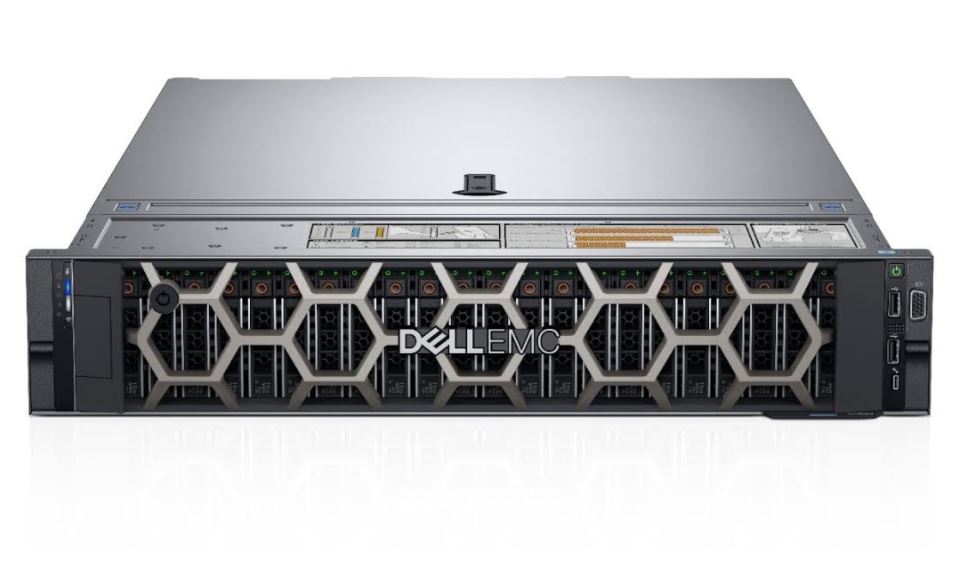
If we were to build a hyper-converged appliance from Dell EMC’s portfolio, this is what we would use. Key highlights are that Dell is increasing the number of NVMe devices as well as adding new features such as m.2 drive support to keep storage bays free. As we see the transition to 2.5″ NVMe, the R740XD will be the server to get.
Dell EMC PowerEdge R940
The Dell EMC PowerEdge R940 is the successor to the PowerEdge R930 we reviewed previously. There are some major changes. This is the first time that Dell has launched a 4 socket system at the same time as its 2 socket systems for a new product launch. Normally these have come several months later in the process.
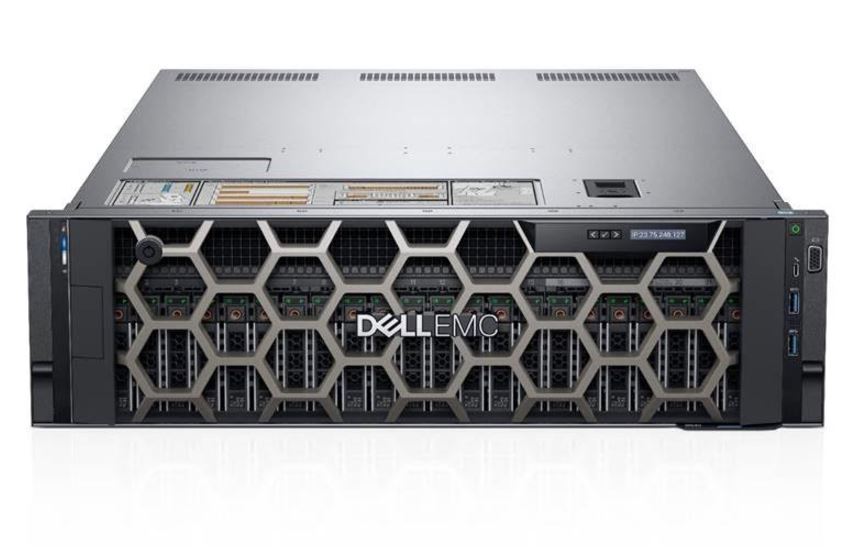
Perhaps the most easily noticeable change that we saw at Dell EMC World 2017 was its new form factor. This 4 socket system, despite handling higher TDP CPUs, is moving to a 3U form factor down from 4U in the R930 generation. That means higher density. We hope to get our hands on one of these for a review (we have 4x Platinum 8180‘s!), but the storage and I/O density per rack unit are greatly increased in this generation.
Dell EMC PowerEdge C6420
The Dell EMC PowerEdge C6420 is a high-density 4 node / 8 sockets in 2U form factor that the company told us has been very successful in its early ship program.
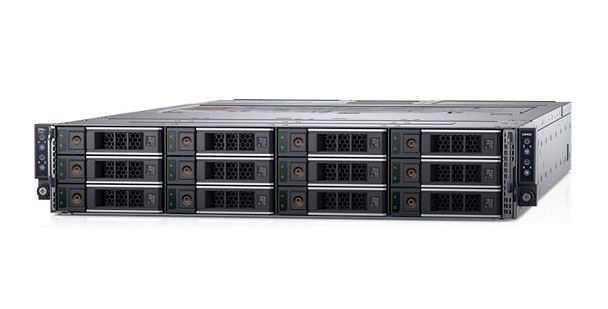
The PowerEdge C6420 is a successor to its platforms that started for hyper-scale customers (e.g. the C6100 and C6220) and has been adopted by more enterprises.
Dell EMC PowerEdge M640 and FC640 Blade and Modular Servers
The Dell EMC PowerEdge M640 and FC640 are modular servers designed for performance and density in Dell EMC blade and modular platforms.
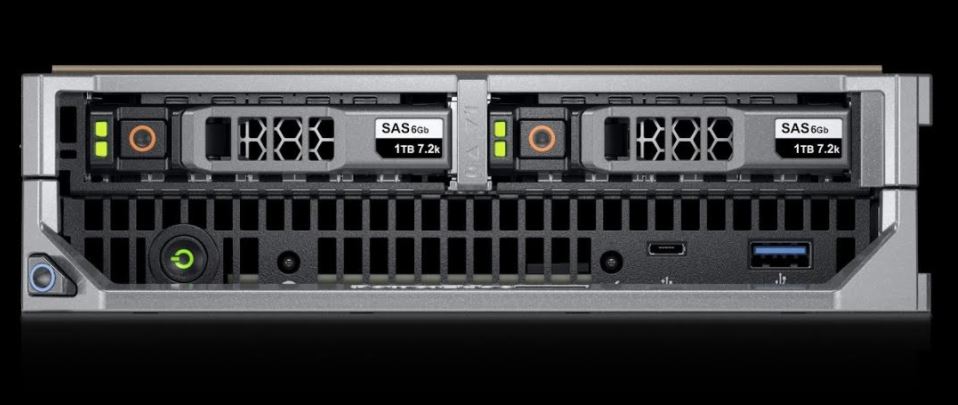
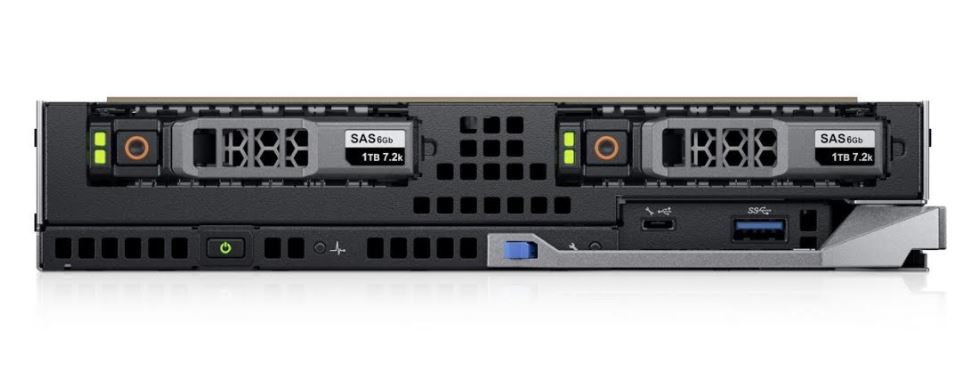
If you are looking for a VRTX or M1000e upgrade, as example, Dell has new modular servers based on Skylake-SP.
Final Words
Overall, these are what we would expect to be the mainstream offerings from Dell EMC servers. They will form the bedrock of compute and scale-out storage nodes that the company will use to help its customers and partners build solutions. Dell EMC has stated that it will roll out more Skylake-SP based products in the future.
One major note here. Since there is a lot of AMD EPYC v. Skylake discussion, Dell EMC still has not released an AMD EPYC platform to purchase. We asked about the system we saw as part of the AMD EPYC launch and we were told that they will be supporting EPYC at a later date as well as potentially adding new Skylake platforms.
Check out the STH Intel Xeon Scalable Processor Family Launch Coverage Central to learn more about the new Intel platform, find comparative benchmarks and see more news.

